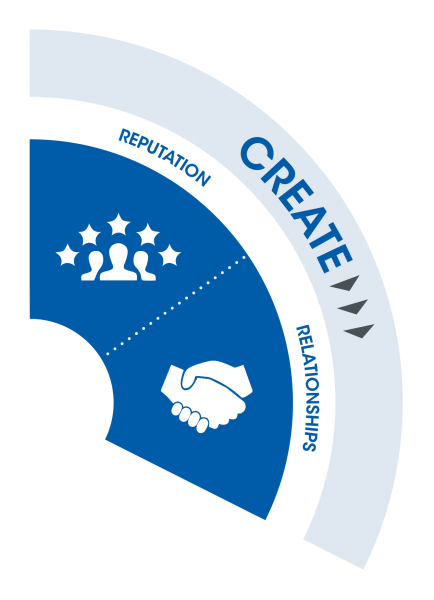In a world where securing strong commercial agreements is essential, negotiation is not merely a skill; it’s a crucial component to winning the right kind of work, for the right fee, and on favourable terms!
From securing bids to finalising contracts, negotiation plays a pivotal role in various spheres, particularly for technical experts, solicitors, engineers, and similar professions. However, negotiation isn’t just about getting what you want; it’s about fostering relationships, finding mutual benefits, and achieving win/win outcomes. In this guide, we’ll share some of the intricacies of negotiation, in our experience of working with technical experts over many years, and will cover key steps, effective strategies, and essential do’s and don’ts tailored for professionals in technical fields.
Understanding the Essence of Negotiation:
At its core, negotiation is about communication and problem-solving. Principled negotiation, as advocated by experts, emphasises separating people from the problem, evaluating options, and striving for mutual acceptance to achieve win/win outcomes. This approach forms the foundation of successful negotiations and healthy client relationships.
The Three Pillars of Effective Negotiation:
1. Preparation:
Effective negotiation begins long before the actual discussion takes place. Preparation is key. Here’s what you need to do:
Define your objectives clearly: Understand what you aim to achieve through the negotiation. Whether it’s securing a favourable contract term or resolving a dispute, clarity of purpose is essential.
Know your BATNA: Your Best Alternative to a Negotiated Agreement serves as your fallback option. Understand your walk-away point—the point at which you’re willing to walk away from the negotiation if terms are not favourable, or when the best alternative is a good outcome. Being clear on what you will do if you do not reach agreement, puts you in a stronger negotiating position.
Research and gather information: Knowledge is power in negotiation. Thoroughly research your position/contract and the other party’s interests, priorities, and potential alternatives. This insight will inform your strategy and enable you to anticipate their moves.
Develop a negotiation plan: Outline your approach, including strategies, tactics, and potential concessions. Consider various scenarios and devise responses accordingly.
2. Effective Negotiation:
Once adequately prepared, it’s time to engage in the negotiation process. Here’s how to navigate it effectively:
Firstly consider “Am I in the right emotional state?” Too much cortisol in our veins and we literally won’t think straight. In this case the best option can be to delay.
Foster open communication: Establish a conducive atmosphere for dialogue. Listen actively to the other party’s concerns and perspectives. Maintain professionalism and civility throughout the discussion.
Focus on interests, not positions: Look beyond superficial demands and uncover underlying interests. By understanding the motivations driving each party, you can identify common ground and generate creative solutions. Ask open questions and really listen to the answers. This helps better understand things from their perspective.
Seek win/win outcomes: Aim for mutually beneficial agreements where both parties walk away satisfied. Embrace collaboration and compromise to maximise value for all involved. This is particularly important where the negotiations involve long-term clients. Push too hard this time…they may seek revenge next time!
Utilise negotiation styles strategically: Adapt your approach based on the situation and personalities involved. Whether employing a competitive, collaborative, or accommodating style, tailor your tactics to achieve optimal results.
3. Review and Reflection:
After the negotiation concludes, take time to reflect on the process and outcomes:
Evaluate the results: Assess whether the negotiated agreement aligns with your objectives and interests. Identify areas of success and areas for improvement. This may not just be on the results of the agreement but on how you approached it, your mindset and tactics.
Learn from the experience: Reflect on what worked well and what could be done differently in future negotiations. Continuously refine your negotiation skills based on insights gained.
Nurture relationships: Maintain positive rapport with the other party, even after the negotiation concludes. Building trust and goodwill lays the groundwork for future collaborations and ensures a strong client relationship.
Top Do’s and Don’ts of Effective Negotiation:
Do’s:
• Do your homework: Thorough preparation is essential for success.
• Do listen actively: Understand the other party’s perspective to find common ground.
• Do aim for win/win outcomes: Seek mutually beneficial solutions.
• Do maintain professionalism: Conduct yourself with courtesy and respect.
• Do follow up: Honor commitments and ensure the negotiated agreement is implemented as agreed.
Don’ts:
• Don’t negotiate without a plan: Always have a clear strategy in place.
• Don’t make unilateral concessions: Ensure concessions are reciprocated to maintain balance.
• Don’t rush the process: Take time to explore options and consider implications.
• Don’t let emotions dictate decisions: Stay calm and composed, even in challenging situations.
• Don’t burn bridges: Cultivate positive relationships, even if negotiations don’t go as planned.
In conclusion, negotiation is a multifaceted skill that can be honed through practice, preparation, and strategic execution. By mastering the art of negotiation, professionals in technical fields can navigate complex scenarios with confidence, foster fruitful collaborations, and achieve optimal outcomes for all parties involved. So, equip yourself with the tools and techniques of principled negotiation, and embark on your negotiation journey with clarity, competence, and conviction.
If you’re interested in refining your negotiation skills further and need some help in doing so, see if our negotiation skills course may be of use to you and your team https://questas.co.uk/negotiation-skills/
Remember, the knowledge gained is only as valuable as the actions you take to apply it.





 We are a business development consultancy which is passionate about helping our clients develop processes, skills and behaviours that will result in increased sales and improved margins.
We are a business development consultancy which is passionate about helping our clients develop processes, skills and behaviours that will result in increased sales and improved margins. 

